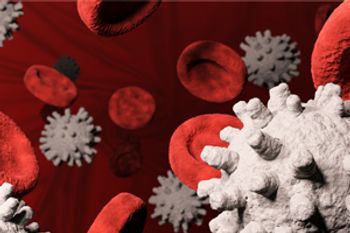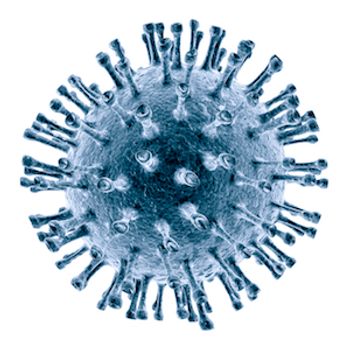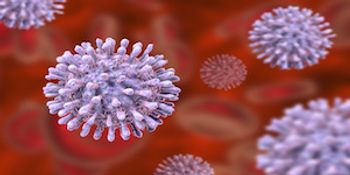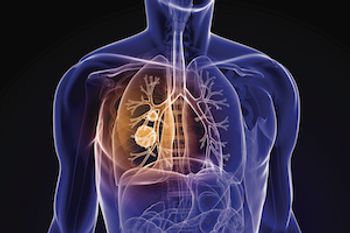
Findings from 3 analyses published in CANCER highlight racial disparities in the survival of patients with ovarian, colon, and breast cancer from 2001-2003 and 2004-2009.
Jaime is a freelance writer for The American Journal of Managed Care® (AJMC®), where she previously worked as an assistant editor.
She has a BA in print journalism from Penn State University. You can connect with Jaime on LinkedIn.

Findings from 3 analyses published in CANCER highlight racial disparities in the survival of patients with ovarian, colon, and breast cancer from 2001-2003 and 2004-2009.

A Kaiser Family Foundation web briefing navigated the HIV/AIDS funding landscape, taking a look at trends over time, the latest data, and what we might expect in the future.

Two abstracts at the 59th Annual Meeting of the American Society of Hematology in Atlanta, Georgia found that CTL019 shows promising potential in providing significant benefit and cost effectiveness for pediatric and young adult patients with B-cell acute lymphoblastic leukemia in both the United States and the United Kingdom.

In a large population of patients who died from hematologic malignancies, the majority spent over 120 days at home in the last 6 months of life. Certain demographic features, such as age and gender, indicate which patients are more likely to die at home and suggest an important role for access to caregiver support, according to an abstract presented at the 59th Annual Meeting of the American Society of Hematology in Atlanta, Georgia.

A secondary analysis presented at the 59th Annual Meeting of the American Society of Hematology found that all individual symptoms of myeloproliferative neoplasms correlate with quality of life (QoL), and having either 1 severe symptom or having multiple symptoms of moderate intensity was meaningfully correlated with QoL reduction.

AJMC provides a look at some of the updates coming out of the FDA this week, from new guidance on digital health oversight to multiple new drug approvals.

Acute myeloid leukemia treatment episodes such as high-intensity chemotherapy, low-intensity chemotherapy, hematopoietic stem cell transplant, and relapsed-refractory patient episodes pose a significant substantial burden, according to an analysis presented at the 59th Annual Meeting of the American Society of Hematology in Atlanta, Georgia.

Patients with AL amyloidosis from lower socioeconomic status groups, defined in terms of education or employment, conveyed lower health-related quality of life compared to patients with more years of education and/or professional/managerial positions, according to an abstract presented at the 59th Annual Meeting of the American Society of Hematology.

Novartis announced that Phase III MONALEESA-7 trial results showed that the combination of ribociclib with an endocrine therapy (tamoxifen or an aromatase inhibitor) and goserelin yielded significant progression-free survival when compared with endocrine therapy and goserelin alone.

The use of healthcare services, with the exception of physiotherapy and psychotherapy, in patients with chronic back pain was lower 6 months after rehabilitation in Germany than before rehabilitation, according to a study published in BMC Health Services Research.

An analysis presented at the 59th Annual Meeting of the American Society of Hematology showed that against a 3-year horizon, ibrutinib succeeds in overall survival (OS) and progression free suvrvival (PFS) over hematopoetic stem-cell transplantation (HSCT) in the treatment of patients with relapsed/refractory chronic lymphocytic leukemia with 17p deletion. Against a lifetime horizon, ibrutinib still proved to be superior in OS and PFS over HSCT, but is no longer cost saving as treatment costs continue.

A study published in the Journal of Managed Care & Specialty Pharmacy found that filgrastim and filgrastim-sndz were noninferior for the prevention of febrile neutropenia events that would require hospitalization. However, inferiority could not be established for serious adverse events.

For high-risk patients with hematological malignancies and febrile neutropenia, empirical antimicrobial therapy can be discontinued after 72 hours of apryexia and clinical recovery regardless of their neutrophil count, according to a study in The Lancet Hematology. The traditional approach of continuing the initial regimen of EAT in neutropenic patients with unexplained fever until neutrophil recovery could result in unnecessarily prolonged EAT.

Health information brand Healthline launched its “State of…” series with its “State of Cancer” study, analyzing how digital information influences patient treatment decisions and recognizing generational differences.

The FDA has approved Foundation Medicine's FoundationOne CDx, the first-of-a-kind comprehensive companion diagnostic test for solid tumors. The test looks for hundreds of cancer genes, providing healthcare professionals with a more complete picture of what's causing tumor growth and guidance for treatment decisions.

The National Cancer Institute (NCI) is sponsoring an ongoing clinical trial that evaluates pembrolizumab in people with HIV who have relapsed or refractory cancer and are also taking antiretroviral therapy. People with HIV are often excluded from participating in clinical trials of new cancer treatments because of concerns that treatments may be unsafe for them.

Trastuzumab-dkst is the first biosimilar approved in the US for treating breast cancer or stomach cancer and the second biosimilar approved in the US for the treatment of cancer.

Countries in Southern and Eastern Africa have the highest prevalence of HIV worldwide. The Joint United Nations Program on HIV/AIDS strategy to end AIDS by 2030 has been dedicated to preventing HIV through voluntary medical male circumcision in Southern and Eastern African countries with HIV epidemics and low male circumcision prevalence.

With the increasing emergence of less expensive biologic alternatives, some health systems are making the switch. For a large healthcare system, the arrival of a cheaper alternative to filgrastim prompted the conversion to using tbo-filgrastim as the preferrred granulocyte-colony stimulating factor. The results were shared in a study published by the Journal of Managed Care & Specialty Pharmacy.

After a year-long process, Shawnee Mission Health (SMH) is now a certified member of the MD Anderson Cancer Network, the top ranked cancer center in the US. The 2 will work together to raise the standard of cancer care in the Kansas City metropolitan community through patient-centered care.

In an interview with The American Journal of Managed Care®, Kashyap Patel, MD, Carolina Blood and Cancer Care, discussed risk factors that contribute to the development of neutropenia, how to minimize the risk of development, the effects of neutropenia, and what he recommends to patients who have been treated for the condition.

Physical activity, even of a low-intensity, reduces the risk of cardiovascular disease in older adults, according to a study published in The European Journal of Preventive Cardiology. Although the authors found similar associations for individuals under age 55 and individuals aged 55-65, the results were not statistically significant.

A study published in CA: A Cancer Journal for Clinicians found that 42% of all incident cancer cases in US adults age 30 years or older in 2014 were attributable to potentially modifiable exposures. Exposures included smoking, alcohol intake, physical inactivity, and low fiber intake.

A study published in JAMA Oncology found that a significant number of patients newly diagnosed with cancer have had a prior cancer. The prevalence differed among age group and incident cancer type.

The Patient-Centered Outcomes Research Institute (PCORI) Board of Governors approved $57 million to support 14 new comparative clinical effectiveness research studies, including studies on dementia, prostate cancer, and anxiety disorders.

A study published in Breast Cancer Research found that smoking is associated with a significant increased risk of breast cancer, especially in women who started smoking during adolescence or who have a family history of the disease.

A study published in JAMA Internal Medicine found that blood pressure (BP) lowering is associated with reduced risk of death and cardiovascular disease (CVD) if the baseline systolic blood pressure (SBP) is 140 mm Hg or higher. Treatment may be considered in patients with coronary heart disease and SBP under 140 mm Hg, but not for primary prevention.

Roche is suing Pfizer to block the company from selling a biosimilar referencing its breast-cancer drug Herceptin in the United States, claiming that the biosimilar infringes on 40 of its patents.

David Dale, MD, professor, internal medicine, University of Washington Medical Center, dicusess diagnosing neutropenia and its symptoms; the causes of neutropenia; when neutropenia becomes dangerous and requires hospitalization; and the costs associated with neutropenia in an interview with The American Journal of Managed Care®.

Roche announced that its phase 3 IMpower150 study determined that the combination of drug atezolizumab (Tecentriq) to bevacizumab (Avastin) with the chemotherapy drugs paclitaxel and carboplatin showed a significant reduction in the risk of disease worsening or death compared to Avastin plus chemotherapy in the first-line treatment of patients with non-small cell lung cancer (NSCLC).

259 Prospect Plains Rd, Bldg H
Cranbury, NJ 08512
© 2025 MJH Life Sciences®
All rights reserved.
